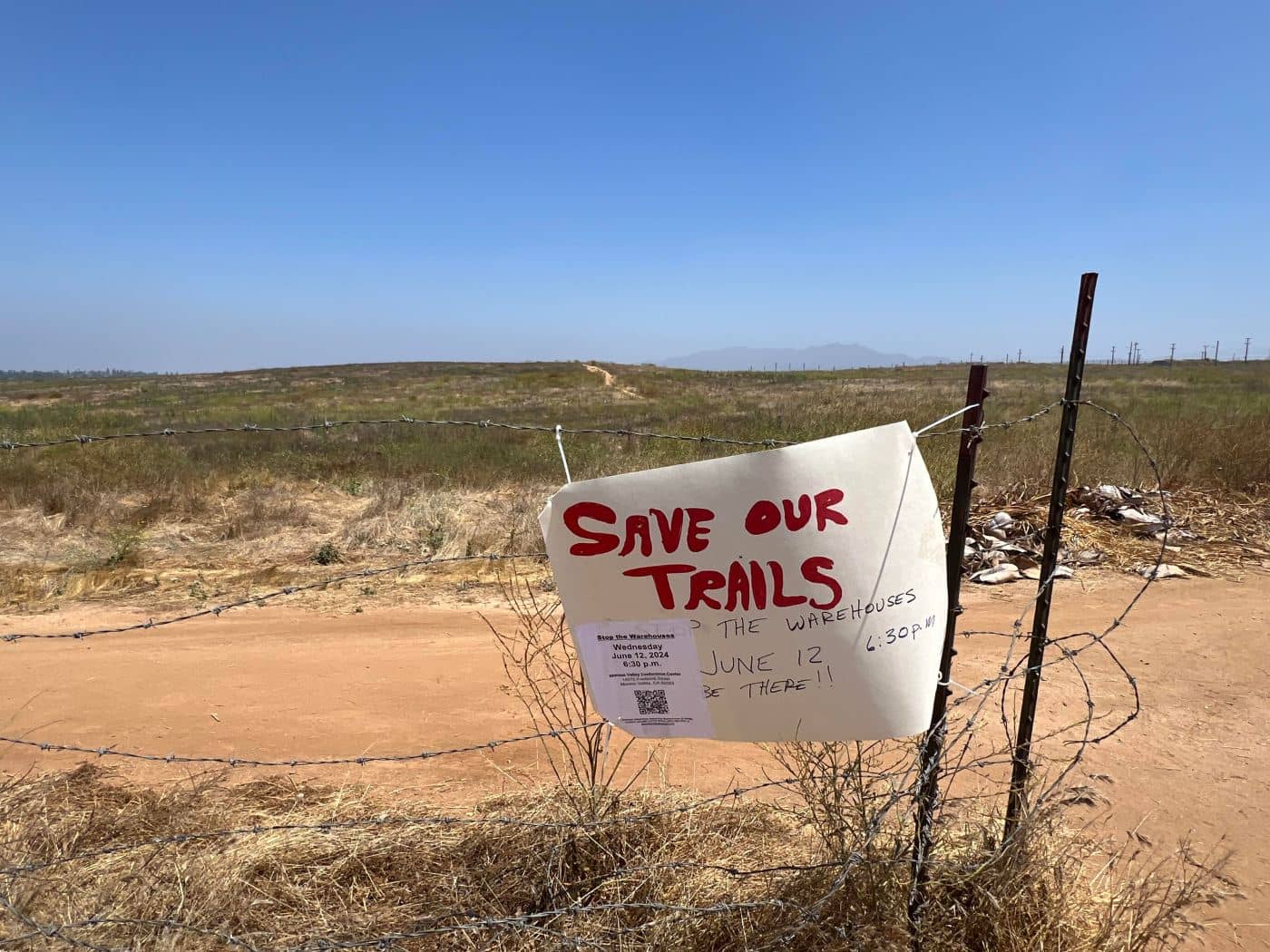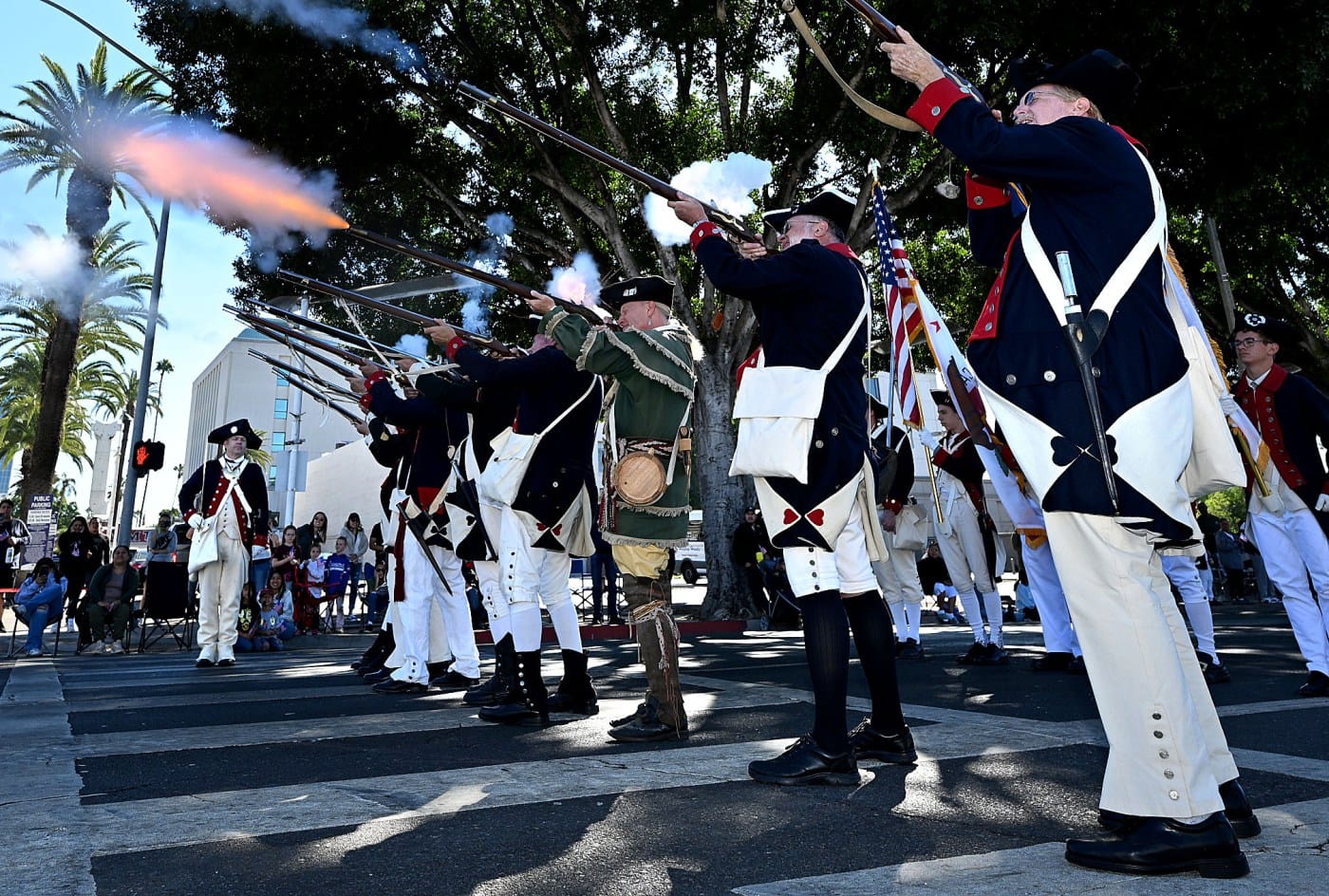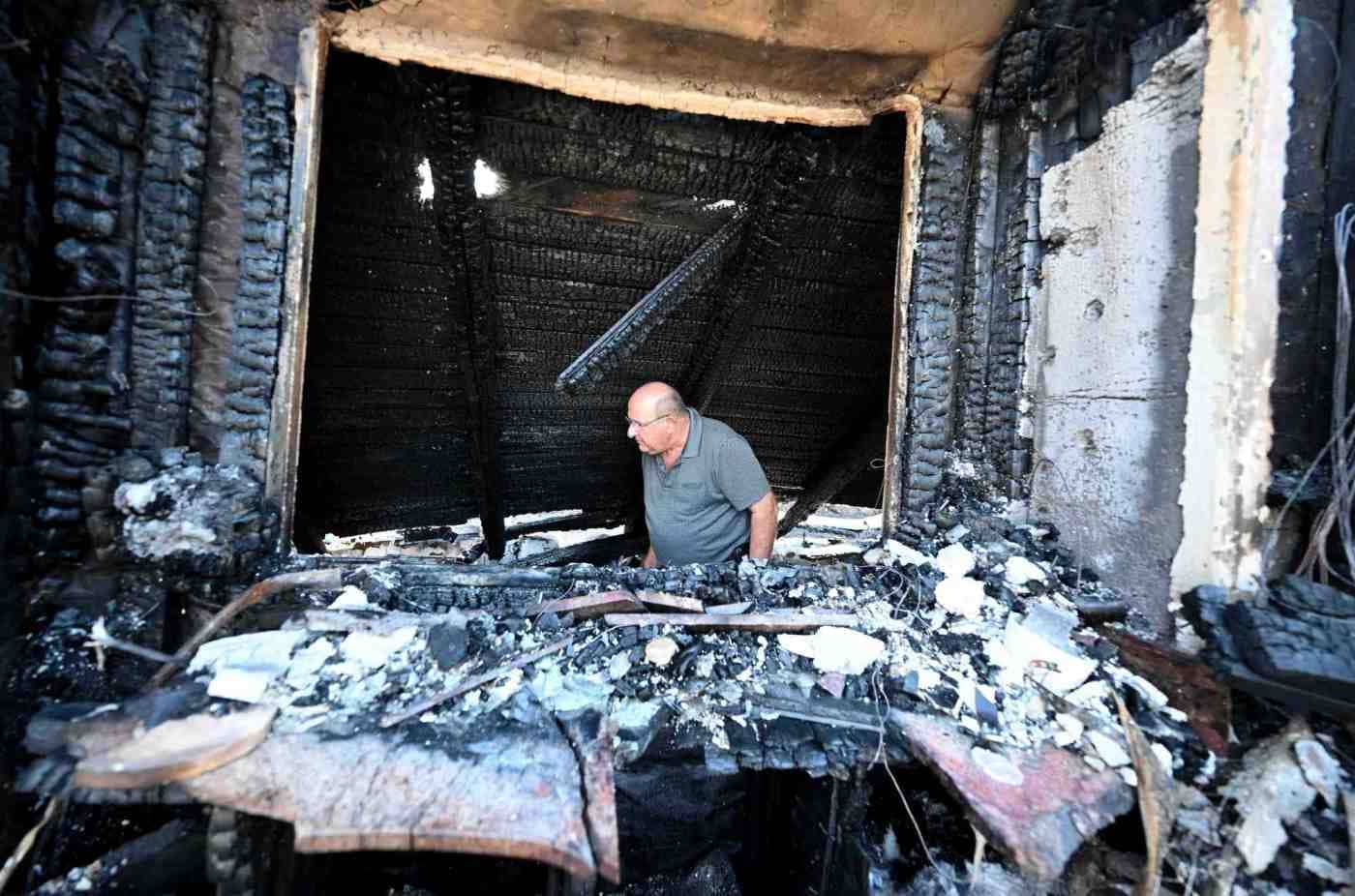Last summer, a panel of elected leaders put a plan that could have built as much as 1.84 million square feet of warehouses or industrial buildings bordering Riverside into procedural limbo.
This week, that same panel rebuffed an effort that could have revived the project sought for ex-military land near Riverside’s Mission Grove and Orangecrest neighborhoods.
The 7-1 vote by the March Joint Powers Commission on Wednesday, Jan. 8, continues an uncertain future for the 818-acre West Campus Upper Plateau project, which faced organized and determined opposition from nearby residents.
The project sought to develop land near The Grove Community Church, including munitions bunkers, that used to be part of March Air Force Base before it downsized in the 1990s to become March Air Reserve Base. The property sits south of Alessandro Boulevard, west of Meridian Parkway, east of Barton Street and north of Grove Community Drive.
Land-use authority over the property is held by the commission, which oversees the March Joint Powers Authority, a public agency tasked with redeveloping ex-air base land. The eight commissioners are county supervisors and city councilmembers representing Riverside County, Riverside, Perris and Moreno Valley — jurisdictions surrounding the air base.
Upland-based Lewis Management Corp. sought to turn one of the authority’s last undeveloped parcels into a mix of logistics/industrial and commercial space, open space and parks.
At the center of the project as proposed in summer was two buildings, one being 1.25 million square feet and the other totaling 587,000 square feet. March authority Planning Director Dan Fairbanks said in June that the buildings could be warehouses, manufacturing or industrial space.
According to Lewis, the buildings would be at least 1,000 feet from any homes and 55% of the project would be preserved as open space and open to the public for recreation. As a condition of approval, the project would contribute $30 million toward designing and building a 60-acre park and $10 million for a new fire station.
That wasn’t enough to satisfy project critics.
At a long and tense commission meeting June 12, dozens of residents said the project would worsen air pollution and truck traffic, spoil the scenery and add to what they call an oversaturation of warehouses in the area.
Then-Riverside County Supervisor Kevin Jeffries motioned to put the project “off calendar,” meaning a majority of commissioners would have to decide to put the project on a future agenda.
The commission approved Jeffries’ motion with a 6-1 vote, and the project has sat in limbo ever since.
During the commission’s Wednesday meeting, Timothy Reeves, a representative of the developer, asked commissioners to un-table the project and put it on the commission’s February agenda to set up a March public hearing.
“We have spent quite a bit of time thoughtfully considering and integrating into the project the comments made by commissioners (and) the public … and would like to present these improvements and changes to the project for the commission’s consideration,” Reeves said.
In an emailed statement Friday, Jan. 10, Randall Lewis, Lewis’ senior executive vice president, said: “Based on the feedback we received in June, we have revised our proposal into a smaller development alternative that reduces the project footprint while increasing setbacks and buffering.”
“We are hopeful that the commission will allow us the opportunity to present this smaller development alternative to the public,” he said.
Jen Larratt-Smith, chair of Riverside Neighbors Opposing Warehouses, spoke at Wednesday’s meeting and urged the commission not to resurrect the project.
“If the project still contains warehouses, which I’m guessing it does, then it is still fundamentally unresponsive to the reason hundreds of people showed up on June 12 to oppose it,” she said.
She told commissioners: “Taking up a developer’s request during public comment today will prove to the community again where your allegiances lie. The JPA is a public agency. It was not developed to primarily serve the interests of a private developer.”
Toward the end of the meeting, Commissioner and Riverside Councilmember Chuck Conder motioned to ask staff to put an item to un-table the project on the commission’s February agenda.
In an phone interview Friday, Conder said he wanted to hear about the developer’s revised plans. He said he heard “second- and third-hand” that the project has been “drastically reduced in size.”
“The whole motion was to vote to un-table, then we can hear what the plan is, and if we still don’t like it, we can still deny it,” Conder said. “But we don’t know what to deny if we can’t see it.”
Commissioner and Riverside County Supervisor Jose Medina succeeded Jeffries, who retired from the board in December. A former state assemblymember who was sworn in this week, Medina pushed back on Conder’s motion, saying he needed “more time to study the issue.”
Eventually, the commission voted 7-1 with Conder opposed to direct authority CEO Grace Martin not to place the project on February’s agenda.
Conder said he’s not sure if he’ll try to put the project on a future agenda. The authority, which has been around since the 1990s, is set to dissolve July 1.







